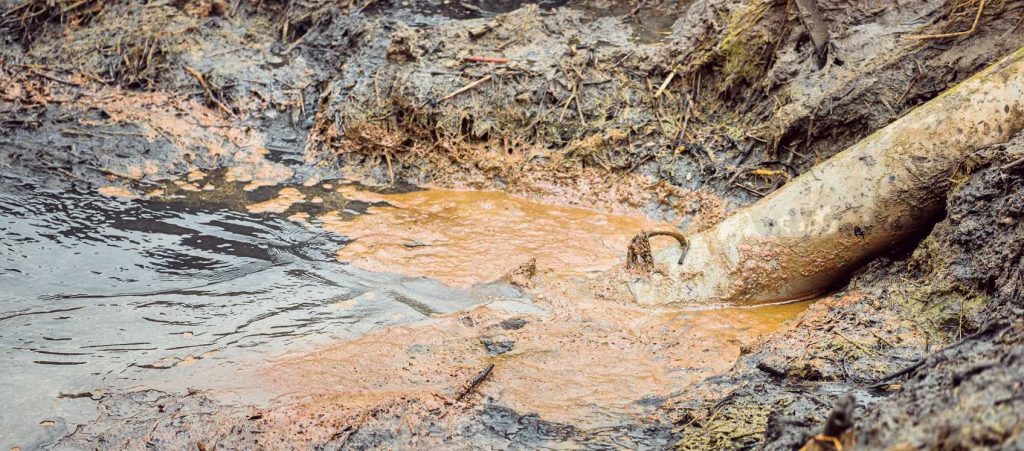Restaurant Grease Traps Polluting Rio Grande
Cooking grease from Española businesses is causing water contamination in the Rio Grande and officials charged with treating the city’s water, say they need help to stop future spills. Española Wastewater Superintendent Lawrence Rhome told the city’s Public Works Committee that grease is getting into the sewer system, the city’s Wastewater Treatment Plant and eventually the Rio Grande.
Inside the plant, the grease encourages growth of a microorganism called nocardia, he said, which bulks up and does not tend to settle like other microorganisms commonly found in the plant, so there is no way for city staff to pump it out of the water during the treatment process.
“The other microorganisms, the good ones, don’t produce as well in that environment, so the treatment process is compromised,” Rhome said. Cooking grease, like vegetable oil and animal fat, can be just as harmful to the environment as petroleum, according to the Environmental Protection Agency.
Dumping any kind of oil is illegal under federal law and Española city ordinances prohibit oil from entering city sewer lines. City ordinances also require grease traps to be installed in a building’s drainage system between the kitchen and the sewer line.
“It’s been affecting the plant,” Wastewater Collections Supervisor David Bustos said. “It’s been a big problem for a long time.” Rhome told Committee members that business and environment go together, and everyone should be responsible.
“We want to be proactive,” he said. “Are we getting some illegal dumping? Are grease traps not working?” Bustos said city staff are having difficulty enforcing the local ordinance that requires local businesses to install and maintain grease traps in their facilities.
He and Rhome have started inspecting grease traps around town, but said they have no legal authority under the city code to make business owners install the devices. Currently, only Code Enforcement Officer Justin Padilla, who works in the Planning and Land Use Department, has that power.
Bustos said the Planning and Land Use Department has never had enough time to go out and enforce the grease trap ordinance, on top of all of its other work. “We’ve been trying to change the ordinance for a long time, but never got through,” he said. “It sits on the table and you forget about it.”
Bustos, who has worked for the city for 27 years, said grease making its way into the treatment plant has always been an issue at one point or another. He said most, if not all, restaurants install grease traps when they open, but the latest effort is just making sure the devices are maintained.
Public Works Director Perry Vigil, City Clerk Anna Squires, Water Operations Foreman Steven Trujillo and Utility Billing Supervisor Nadine Trujillo are rewriting chapters of the city code, which govern the entire water and sewer systems.
In the meantime, Councilor Peggy Martinez suggested Bustos pair with Padilla to do inspections and ensure business owners follow the code. Bustos said no one has ever been cited for not having a grease trap.
She said before revising the entire code, Vigil should quickly rewrite the section on grease traps and get approval from City Attorney Frank Coppler. “It seems like that one would be very easy to get done, especially if it’s affecting the plant, you should try and expedite that piece, even if the rest of it doesn’t come right away,” Martinez said.
City Manager Mark Trujillo said he will direct city staff to send letters to all local businesses, reminding them that they need to install grease traps, and giving them a 30-day deadline to comply before city officials will start showing up at their doors.
Bustos recommended letters be sent to all of the restaurants in town. “When you send the letter out, I would encourage being compassionate,” Councilor Robert Seeds said. “I don’t want any of our business people to resent the letter. Maybe people have forgotten what the ordinance says.”
Bustos said business owners have reacted positively to the inspections that he has already done, and Rhome said the inspections are meant to educate them about the impact of not having grease traps.
Spilling just one gallon of oil can contaminate one million gallons of water, according to the Environmental Protection Agency. Dumping animal fat and vegetable oil can coat animals and plants with oil, destroy future and existing food supplies and habitats, clog water treatment plants and catch fire when ignition sources are present.
Bustos said years ago, older restaurants did not have grease traps and the grease would slow the pumps inside the plant and in the city’s lift stations. However, recently, the grease has been coming directly into the plant and not slowing the pumps, only affecting the actual treatment process.
To prevent your grease traps from getting clogged with food solids, consider installing The Drain Strainer so you won’t have grease trap cleaning issues.

